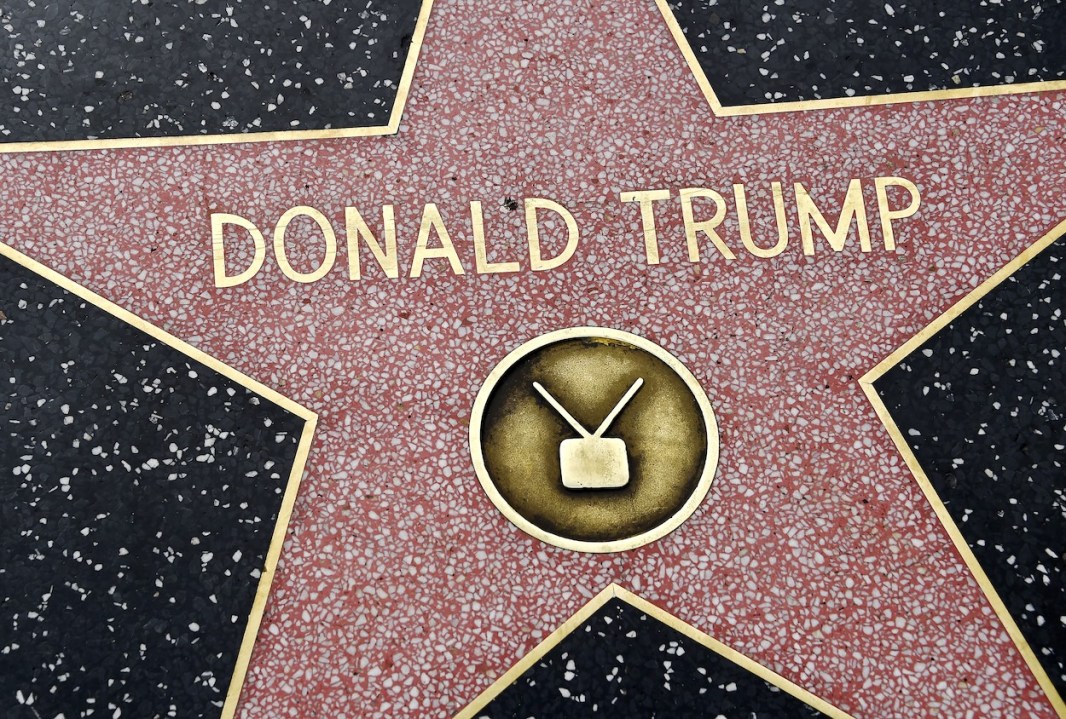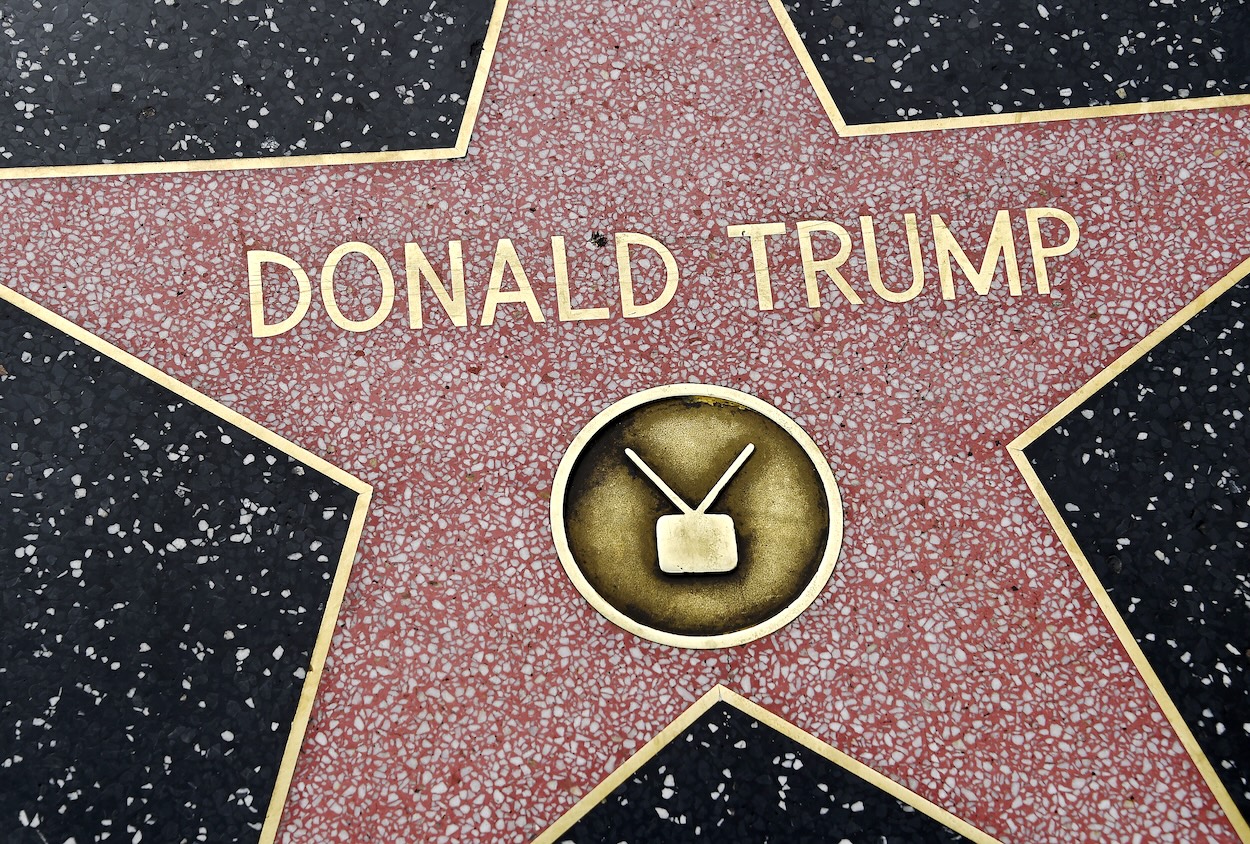When I lived in LA in the 1990s, there was one golden rule of the film industry: Hollywood should follow and never lead. This mantra was, predictably, ignored in the wake of the election. Variety splashed with the headline ‘Hollywood on Edge After Trump’s Devastating Victory’. One actor was quoted bemoaning the ‘unimaginable cruelty that’s going to be unleashed on women, immigrants and the LGBTQ community’. Another said they had called LA pharmacies to ‘hoard birth control pills’.
‘I know lots of agents and producers who voted Republican’
Yet this fractious relationship is about to see a surprising plot twist. After years of virtue-signalling films – including a feminist Terminator and a female Muslim Marvel hero – Hollywood CEOs are quietly welcoming Trump: The Sequel. A shift away from liberal preaching has been under way for a while, and it has less to do with Trump and more to do with economics. The reason is that Hollywood has bankrupted itself.
Yale-educated Rob Long was a writer and executive producer of Cheers. When I knew him in LA, he was one of the few Hollywood producers who dared admit to being a Republican. Things are more relaxed now, he says. ‘This is a business that thrives when it’s close to death,’ Long tells me. ‘One of the reasons it was so easy to slip into the woke madness and lah-di-dah progressiveness is because interest rates were close to zero for decades, which meant the place was flooded with money. Now all of those big-borrowing studios have debt payments to make, so they’ll be tightening belts and firing executives. Going broke will make them better. Some of the adjustments and political refocusing in Hollywood will come naturally anyway in this process of getting smaller and slashing payroll.’
When I lived in LA, the smartest executive I knew encouraged me to see the town as a Colonel Kurtz-like social laboratory of human relations. It operates on the principle of Darwinian survival and self-interest. Rob Long believes that the town will be saved by the necessity of commercial instincts. ‘The thing about Hollywood and wokeness is that it’s not quite clear how deep into the bone this kind of thing has set. It depends less on what Trump does than how pressure groups respond. What will happen – what’s happening all over, in lots of industries – is that the woke-DEI psychosis is lifting. You just can’t run a business like that.’
Hollywood’s decline and fall as an industry town has been a textbook example of Hemingway’s assessment of bankruptcy: gradually and then suddenly. The multitude of factors includes the death of the classic movie star, the pandemic, the year-long actors’ and writers’ strike, the rise of the actor-influencer who can’t act, and the dystopian introduction by the Academy of Motion Pictures of new guidelines. These guidelines require the ‘creative industries’ to only produce content that meets certain mandatory equality, sexuality, and disability quotas.
Add in the fact that the average TV drama episode now costs $10 million to make, and the threat of California governor Gavin Newsom’s cap on TV and film tax credits, and the result has been a set of disastrous financial numbers for the major studios. Paramount Global terrified shareholders in August (with its stock down 30 per cent) by reporting a $6 billion write-down on its cable television networks alone, along with 15 per cent staff layoffs. In May, famed investor Warren Buffet revealed that he had sold all his Paramount stock, losing as much as $1.5 billion. Walt Disney and Warner Bros have also been hit.
The old studio business model that worked so well in the 1990s is broken. Even Disney CEO Bob Iger told concerned investors last year that the company was going to ‘quiet the cultural noise’. So expect more old-fashioned action films like Gladiator II, which broke records on its international opening, bringing in $87 million. Like Top Gun: Maverick, it seems destined to make over a billion at the box office.
The days of Hollywood being run like a mini-feudal town with studio chieftains like Louis B. Mayer or Jack Warner are long over. Multinational entertainment companies are traded on Wall Street just like Big Tech companies. Executives want to be on the side of the commercial winners. Making money is a useful leveller, and keeping the markets happy is the best way to keep your job.
The shift is also about insecure Hollywood types wanting to be on the side of the winners. At a post-election black-tie gala event at Mar-a-Lago, Rocky star Sylvester Stallone introduced Trump as the ‘second George Washington’. Other supporters include Mel Gibson, Jon Voight, Dennis Quaid, and Kelsey Grammer – star of Cheers and its spin-off series Frasier, playing divorced psychiatrist Dr Frasier Crane, one of the longest-running and successful roles in US prime-time TV history.
The 2025 Oscars, taking place in March, will be an interesting barometer by which to measure the cultural atmosphere. The award show has long been panned by critics and has also lost millions of viewers in the process, such is its self-congratulatory, progressive tone. Perhaps the Academy has finally realised this. Earlier this month, it was announced that Harvard-educated Irish-American Conan O’Brien will present the show. I asked another LA producer about the Bafta awards, which have also suffered in recent years. He said that awards season has become a spectacle of ‘a specific kind of progressive politics – racial inclusion and trans-positive stuff – and everyone is getting pretty exhausted by that stuff now.’
‘California is now back to being a Purple State,’ he says from Beverly Hills. ‘I know lots of agents and producers who voted Republican. The woke thing is overblown, along with a caricature that Hollywood is the liberal enemy. When Mel Gibson said that “Kamala Harris has the IQ of a fence-post,” nobody cared.’
Trump and Hollywood are both dysfunctional and needy, and so are perfectly suited to one another. The town may even thrive under the new president. ‘We’re the only business that knows how to handle a mentally and emotionally unstable star,’ adds Long. But as all good studio execs know, it’s best to follow the star and not to try to take the lead.
This article is free to read
To unlock more articles, subscribe to get 3 months of unlimited access for just $5








Comments
Join the debate for just £1 a month
Be part of the conversation with other Spectator readers by getting your first three months for £3.
UNLOCK ACCESS Just £1 a monthAlready a subscriber? Log in